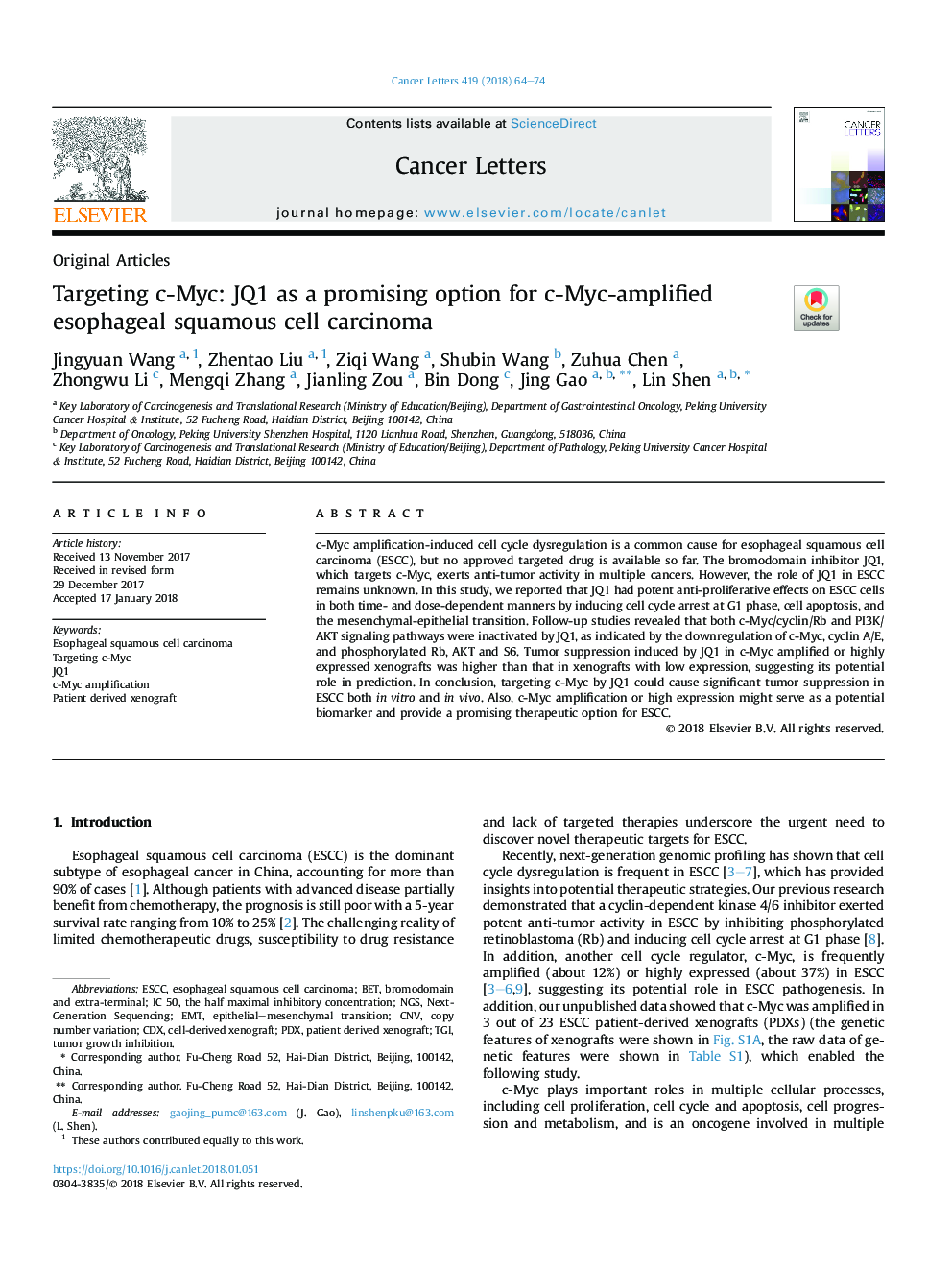| Article ID | Journal | Published Year | Pages | File Type |
|---|---|---|---|---|
| 8434737 | Cancer Letters | 2018 | 11 Pages |
Abstract
c-Myc amplification-induced cell cycle dysregulation is a common cause for esophageal squamous cell carcinoma (ESCC), but no approved targeted drug is available so far. The bromodomain inhibitor JQ1, which targets c-Myc, exerts anti-tumor activity in multiple cancers. However, the role of JQ1 in ESCC remains unknown. In this study, we reported that JQ1 had potent anti-proliferative effects on ESCC cells in both time- and dose-dependent manners by inducing cell cycle arrest at G1 phase, cell apoptosis, and the mesenchymal-epithelial transition. Follow-up studies revealed that both c-Myc/cyclin/Rb and PI3K/AKT signaling pathways were inactivated by JQ1, as indicated by the downregulation of c-Myc, cyclin A/E, and phosphorylated Rb, AKT and S6. Tumor suppression induced by JQ1 in c-Myc amplified or highly expressed xenografts was higher than that in xenografts with low expression, suggesting its potential role in prediction. In conclusion, targeting c-Myc by JQ1 could cause significant tumor suppression in ESCC both in vitro and in vivo. Also, c-Myc amplification or high expression might serve as a potential biomarker and provide a promising therapeutic option for ESCC.
Keywords
Related Topics
Life Sciences
Biochemistry, Genetics and Molecular Biology
Cancer Research
Authors
Jingyuan Wang, Zhentao Liu, Ziqi Wang, Shubin Wang, Zuhua Chen, Zhongwu Li, Mengqi Zhang, Jianling Zou, Bin Dong, Jing Gao, Lin Shen,
